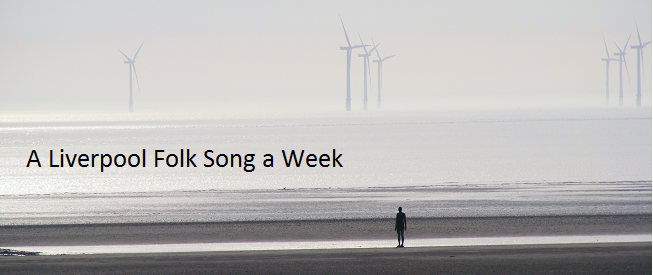Saturday 21 May 2011
7: Van Diemen's Land
Stan Hugill, in his book Shanties from the Seven Seas, tells us that this transportation ballad was used as a forebitter (i.e. a song for entertainment sung around the fore bitts of a ship, as opposed to a work song), and was popular among Liverpool seamen. He prints this version with a very local flavour, collected from T.W. Jones of Liverpool. Those familiar with the later ballad "The Banks of Newfoundland" will note the similarities in both words and tune.
A letter of 1790 from Thomas Milburn to his father and mother in Liverpool (taken, printed, and distrubuted as a broadside), sets out the hardships of the voyage in grim detail: "I am arrived at this place, after a dreary passage on board the Neptune. Had I followed your good counsels I had never suffered so much distress and misery as I have done in my passage here, the bare reflection of which makes my blood run cold in my veins; and many times I had wished that I had died at home rather than to have lain at the mercy of such merciless tyrants... As an instance of our wretchedness it was customary among us when any of our comrades that were chained too us died, we kept it a secret as long as we could for the smell of the dead body, in order to get their allowance of provision… I was chained to Humphrey Davies who died when we were half way, and I lay beside his corpse about a week and got his allowance of provision and water during that time. There were about 140 died on the passage through extreme hunger and wretchedness."
Transportation to Van Diemen's land and elsewhere in what is now Australia was a common punishment for crimes such as theft and poaching, often in commutation of the death sentence. Between 1788 and 1868, the years that parts of Australia were used as penal colonies, more than 165,000 were shipped away there. Lancashire's cities provided a high proportion of those transported, so it's not a surprise to hear a Liverpool version of this song given that so many people from the city would have been sentenced in this way; however, the theme of a poacher being transported occurs regularly in many English songs such as Henry the Poacher, and versions of Van Diemen's Land existed elsewhere in the country, often given the name "The Poachers" or "The Bold Poachers". Various forms of the ballad were also printed for the broadside trade. Van Diemen's Land is #519 in the Roud Folksong Index.
Subscribe to:
Post Comments (Atom)


No comments:
Post a Comment